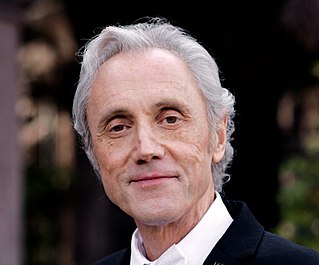A Quote by Victor J. Stenger
To most theistic believers, human life can have no meaning in a universe without God. Quite sincerely, and with understandable yearning for a meaning to their existence, they reject the possibility of no God. In their minds, only a purposeful universe based on God is possible and science can do nothing else but support thistruth.
Related Quotes
To most humans, a universe consisting of particles banging about and doing what they have to do seems cold, barren, and without meaning. Meaning, however, is not something that floats in space, permeating the universe like a nebulous, mystical cloud. ... Meaning arises out of the working of the human mind, and therefore exists only in the human mind. The meaning of existence is whatever you want to make of it.
The universe shows us the life of God, or rather it is in itself the life of God. We behold in it his permanent action, the scene upon which his power is exercised, and in which all his attributes are reflected. God is not out of the universe any more than the universe is out of God. God is the principle, the universe is the consequence, but a necessary consequence, without which the principle would be inert, unfruitful, impossible to conceive.
The point is this: If God does not exist, then life is objectively meaningless; but man cannot live consistently and happily knowing that life is meaningless; so in order to be happy he pretends life has meaning. But this is, of course, entirely inconsistent—for without God, man and the universe are without any real significance.
Man depends on God for all things: God depends on man for one. Without man's love God does not exist as God, only as creator, and love is the one thing no one, not even God himself, can command. It is a free gift or it is nothing. And it is most itself, most free, when it is offered in spite of suffering, of injustice, and of death . . . The justification of the injustice of the universe is not our blind acceptance of God's inexplicable will, nor our trust in God's love, his dark and incomprehensible love, for us, but our human love, notwithstanding anything, for him.
Some people have views of God that are so broad and flexible that it is inevitable that they will find God wherever they look for him. One hears it said that 'God is the ultimate' or 'God is our better nature' or 'God is the universe.' Of course, like any other word, the word 'God' can be given any meaning we like. If you want to say that 'God is energy,' then you can find God in a lump of coal.
Your worst days are never so bad that you are beyond the reach of God's grace. And your best days are never so good that you are beyond the need of God's grace.Pharisee-type believers unconsciously think they have earned God's blessing through their behavior. Guilt-laden believers are quite sure they have forfeited God's blessing through their lack of discipline or their disobedience. Both have forgotten the meaning of grace because they have moved away from the gospel and have slipped into a performance relationship with God.
What could define God, [is thinking of God] as the embodiment of the laws of nature. However, this is not what most people would think of that God. They made a human-like being with whom one can have a personal relationship. When you look at the vast size of the universe and how insignificant an accidental human life is in it, that seems most impossible.
The absurdist is concerned with the search for meaning in the Universe. He believes this search to be meaningless--hence the disintegration of plot, character, and language in absurdist drama. Order is a falsehood that we, God, those who came before us, have imposed on a random universe. However, the absurdist is confronted with a curious paradox: though he believes the Universe to be meaningless, he cannot abandon the search for meaning--or he will die.
As we shall see, the concept of time has no meaning before the beginning of the universe. This was first pointed out by St. Augustine. When asked: What did God do before he created the universe? Augustine didn't reply: He was preparing Hell for people who asked such questions. Instead, he said that time was a property of the universe that God created, and that time did not exist before the beginning of the universe.
What do I know about God and the purpose of life? I know that this world exists. That I am placed in it like my eye in its visual field. That something about it is problematic, which we call its meaning. This meaning does not lie in it but outside of it. That life is the world. That my will penetrates the world. That my will is good or evil. Therefore that good and evil are somehow connected with the meaning of the world.The meaning of life, i.e. the meaning of the world, we can call God. And connect with this the comparison of God to a father.
































